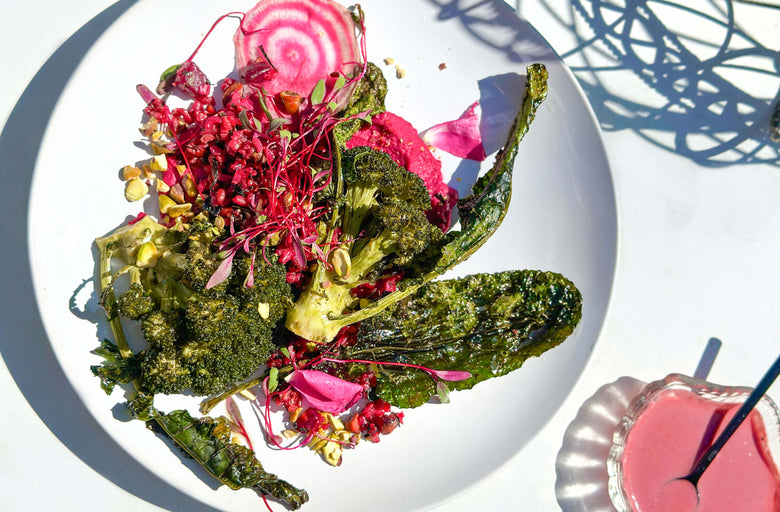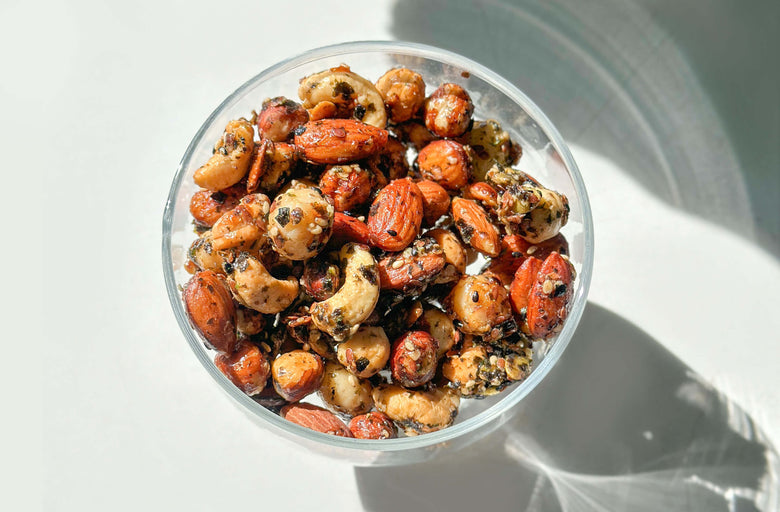Sleep: it should come so naturally since we do it with our eyes closed. Yet, 1 in 3 American adults isn’t getting enough sleep. That statistic didn’t sit right with us—especially since great sleep, along with nutrition and moving your body, creates the foundation for having a glowing bill of health.
To dive much deeper into the science behind sleep, the hormones at play, and the tips to setting yourself up for sacred rest, we linked up with renowned sleep psychologist and rest expert, Dr. Shelby Harris. We recommend reading her informative gems as you wind down from the day, then setting your phone away at least an hour before bed; keep that blue light out of the bedroom.

On the Sleep-Gender Gap: “Sleep is important to everyone! However, for women, we tend to be pulled in so many different directions —from work-life to family-life to hormonal and life changes that we often just suffer in silence and put everyone’s needs before our own and figure we’ll eventually get sleep. Women also tend to have higher rates of anxiety and depression in comparison to men, which leads to more sleepless nights. The reality, though, is that sleep should be considered as the baseline for which everything else will improve. Making time for more sleep and better quality sleep improves mood, cognition, stress tolerance, decision making, energy and reduces the risk of illness, accidents and medical conditions such as heart attacks, stroke, and diabetes.”
On Activating Our Inner Chill Pill: “A solid night of good sleep (both quality AND quantity) essentially chills us out, activating our parasympathetic nervous system. What we find, though, is that during sleep, your sympathetic nervous system – which controls your “fight or flight” response – gets a chance to relax. When we are deprived of sleep, our sympathetic nervous system turns on and blood pressure and cortisol levels increase, believing there’s a threat.”
On Sleep and Hunger: “A good night’s sleep also helps balance our levels of ghrelin and leptin. Sleep deprivation throws our appetite signaling hormones out of whack, and we know that with less sleep there’s an increase in ghrelin (the hormone that makes us hungry) and a decrease in leptin (which signals we are full). As a result, we eat more when we are sleep deprived and don’t have a good signal to stop. Good sleep habits keep our hunger signals in check.”
On Breaking Up with the Midnight Snack: “Eating a well-balanced diet is key to obtaining a good night’s sleep, and avoiding heavy meals within three hours of bedtime is helpful overall for sleep quality. Avoiding foods high in sugar and caffeine is important as well since they can lead to trouble falling asleep and staying asleep. One hour before bed, a small snack that combines a bit of protein and a complex carbohydrate can help aid in sleepiness as well.”

On Hormones and Our Bio Clocks: “The main hormone we often think relates to sleep is melatonin. Released by the pituitary gland, melatonin plays a key role in our circadian rhythm. Our bodies are biologically programmed, through circadian rhythms, to sleep at night and be alert during the day. The pineal gland is inactive during the day, but when the sun goes down, it becomes active and begins to naturally produce melatonin which then makes you feel sleepy. About two hours before you awaken naturally, melatonin production slows up, helping you to awaken.
During the deeper stages of sleep (Stage 3 in particular), HGH (Human Growth Hormone) is released. HGH is a hormone also produced by the pituitary gland and released into the bloodstream. HGH aids in repairing muscle, strengthening bones, and converting fat to fuel. Less sleep leads to reduced HGH levels, impacting the speed from which you recover from workouts. Sleep deprivation also leads to increased levels of cortisol, which also contributes to slower recovery times.”
On “Sleep Snacks:” “Daily, planned naps are necessary for some people, while others find that taking an occasional nap when sleepy might be all that is needed. Short, 20-minute naps have been proven to reduce accidents and mistakes, and improve attention, decrease stress, concentration, performance and alertness. Remember, less is more; you’re ‘snacking on sleep’ so you don’t ruin your appetite for sleep at night. And try to not nap after 2 or 3pm at the latest, otherwise it’ll interfere with nighttime sleep.”
On Sleep Myths: “I debunk sleep myths every Monday on my Instagram account, but I would say the top three are:
- 'I’ll catch up on my sleep on weekends’
- Alcohol helps you sleep
- 'Hitting the snooze button gives me extra, important rest’”
On Keys to Great Sleep:
- Consistency. Keep the same bed and wake times daily, even on weekends. A consistent wake time will help with falling and staying asleep more effectively.
- Avoid screens one hour before bed to help wind down and allow for one hour to really decompress before bed without screens (try reading, stretching, restorative yoga, meditation, etc).
- Avoid alcohol three hours before bed
THE SCIENCE BEHIND GREAT SLEEP:
Eat Your Way to A Great Night’s Sleep






